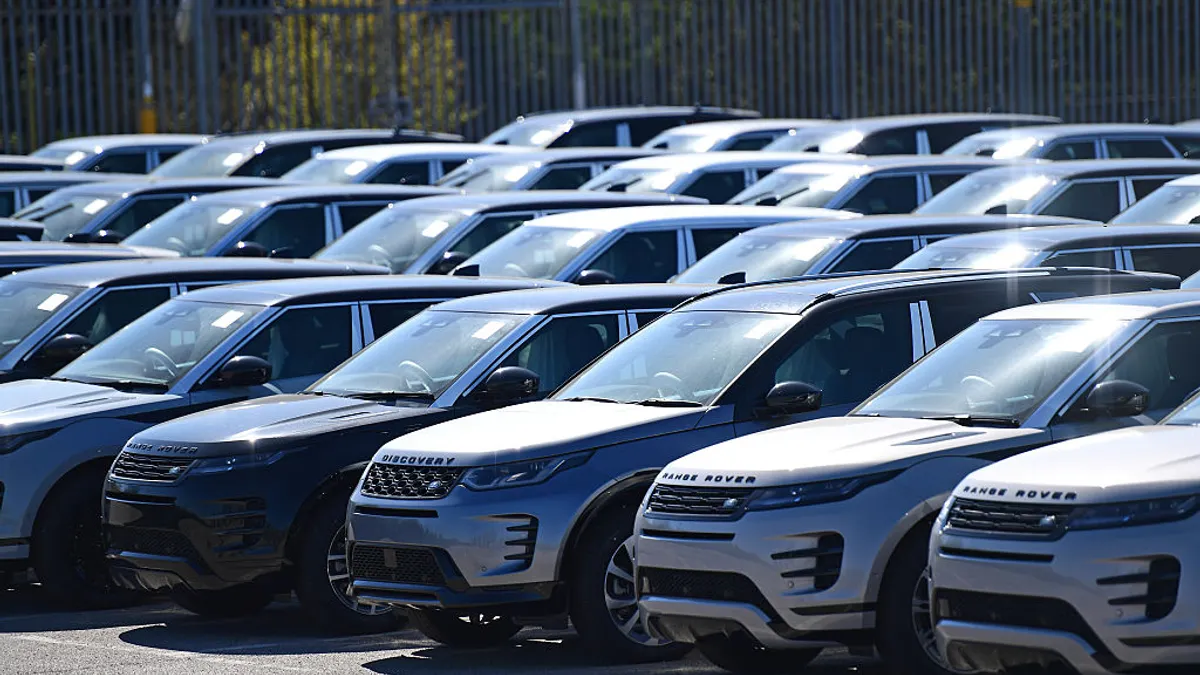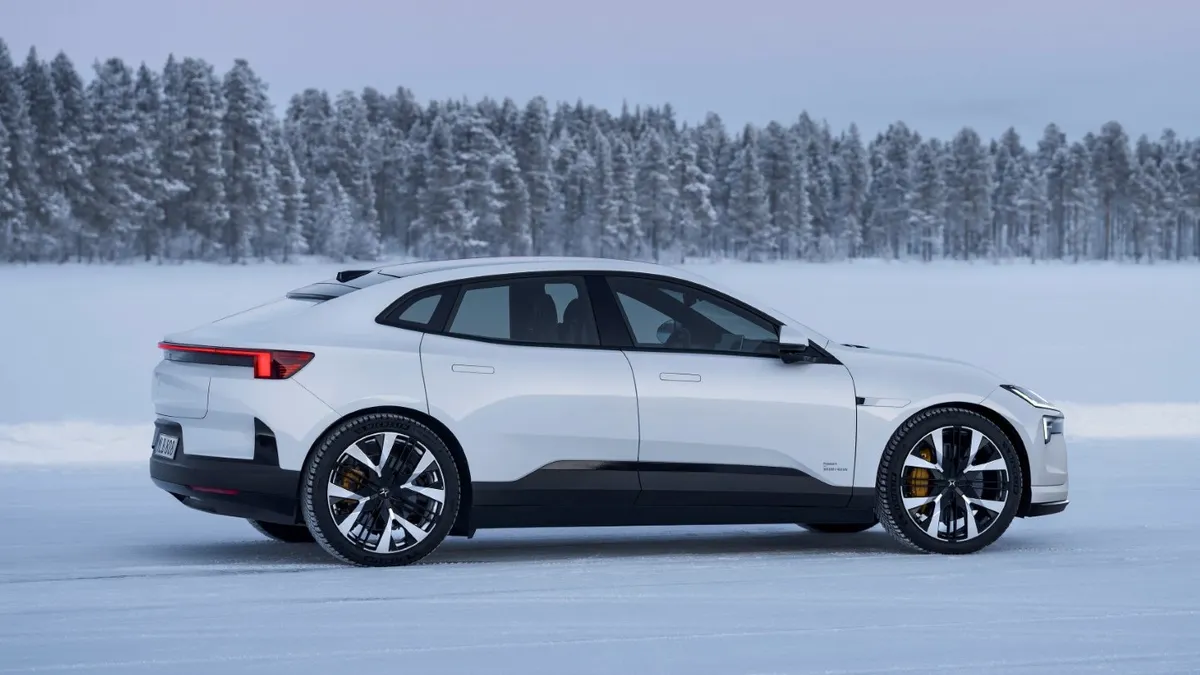Editor's note: This story is part of the WardsAuto digital archive, which may include content that was first published in print, or in different web layouts.
While Suzuki exiting the U.S. market does not shock me, what does surprise me is the value of the dealer network that Suzuki disregarded.
Almost all emerging or existing international brands want to enter the U.S. market. The challenge of establishing a strong dealer network keeps many of them away.
I would have thought Suzuki, in exiting the U.S. market, would have attempted to maximize the value of its dealer network. I would have thought Chinese auto brands eyeing the market would want to partner with Suzuki’s retail network.
I even advised a dealer who was considering dropping or selling his Mitsubishi franchise to keep it because it seemed inevitable a Chinese brand ultimately would partner with Mitsubishi for its dealer network. Seeing Suzuki exit, I now realize how I had miscalculated the situation.
Similar to Suzuki, Mitsubishi internationally is a successful Japanese auto maker with a great reputation for providing reliable and economical vehicles that are in high demand in emerging markets. Unlike the U.S., those are markets where model refreshes, design and innovations are not as essential for maintaining high sales volumes.
With the exception of luxury and exotic segments, the only path to profitability in the U.S. is through volume. Suzuki and Mitsubishi can divert their U.S. resources to make larger profits in lower-volume markets elsewhere because they do not have to invest as much in ongoing product development. They don’t have a financial need to partner with a Chinese brand in the U.S.
Neither Suzuki nor Mitsubishi has found much success in America. So, what should a Mitsubishi dealer do? What happened with Suzuki dealers helps answer that. If you are a Mitsubishi dealer, I hope you have another franchise or are one heck of a used-car guy. If neither, I would consider an exit strategy before one is handed to you.
We now know what the end of the movie may look like for some franchises with limited models, resources and commitments in the U.S.
But why do dealers make what appears to be a limitless commitment to these brands? Dealers invest millions of dollars in single-purpose facilities, dedicate hundreds of thousands of dollars in advertising and brand-building and commit tremendous personnel resources to promoting a brand in exchange for potential profitability.
Dealers do not need to look too far to see that many of these auto makers lack the product or management depth to position their brands as anything more than speculative.
Yet time and time again, dealers expect these brands to be the industry’s Rocky Balboa that somehow, despite limitations, can take all the hits that the U.S. market can give and still compete with the heavyweights.
They hope those brands become the next Toyota or BMW. But it took those winners decades to establish their foothold in the U.S., and only after establishing trust with both customers and dealers and developing a reputation for product excellence.
One of the strongest stances the National Automobile Dealers Assn. has taken lately is its opposition to auto makers’ facility-upgrade programs. The trade group has tried to show that some of the imposed new-facility requirements hurt dealers more than help them. There is validity to NADA’s claims that auto makers are overreaching.
There is no better current example of the dealer-facility divide than Fiat. I have a lot of respect for what Sergio Marchionne has done for Chrysler and Detroit. But the manner in which Fiat was launched is self-serving and doesn’t benefit dealers.
Instead of selling Fiats in carved-out areas of Chrysler stores, similar to what Toyota did with Scion and Hyundai did with the upscale Genesis models, Marchionne insisted on Fiat stand-alone stores.
That requirement additionally burdens cash-strapped Chrysler dealers who must invest a lot for minimal returns.
This comes at a time when other brands are seeing strength in melding their dealer networks. For instance, Land Rover and Jaguar are moving to consolidate all points. Ford is looking to pair the Ford and Lincoln brands where feasible.
General Motors allowed significant consolidation among its dealers. Audi allows dualed franchises in smaller markets. Yet, Fiat feels it is stronger on its own.
About 150 dealers have built exclusive facilities to essentially sell one model, the Fiat 500. Margins are thin. Not enough units are in operation to adequately support a dealership’s service department.
When Hummer had separate stand-alone dealerships, it already had two models and a third on the way. Hummer dealers earned high profit margins. Sales volumes were decent. Despite all this, the business model failed.
Exclusive sales points for low-volume models only work for luxury and exotic brands. Even then, much of the dealership profits come from used-vehicle sales and service operations.
Many Fiat dealers agreed to build exclusive facilities based on the prospect of possibly attaining an Alfa Romeo franchise down the road. But to cite another movie, this “Field of Dreams” mentality can be costly.
Dealers can fall into a trap when investing in emerging brands. They think that because the franchise carries no blue-sky payments it is somehow free. This is far from the truth.
Even new points for Toyota, Mercedes-Benz, BMW and Honda are not without risk or significant capital requirements. Dealers who make those outlets work usually have extensive personnel and financial resources to weather the first few years of business.
With the growth of Chinese auto brands and the development of alternative-fuel technologies, we are seeing new ventures at home and abroad.
We may ultimately see the next great auto maker of the century. But dealers need to stop some of the irrational behavior they display when a new brand comes along. It not only can hurt them, but also the industry as a whole.
That is because the bar for facility requirements will continue to be raised by every auto maker entering the market.
New brands entering the U.S. will continue to need a strong dealership network. That always has been the case. But they all don’t need exclusive facilities. Dealers need to exercise due diligence when it comes to deciding which auto maker to partner with.
Phil Villegas is a principal at Axiom Advisors, an automotive dealership consulting firm specializing in mergers, acquisitions, enterprise management and litigation Support. He is at [email protected] and 786-472-2800.



















